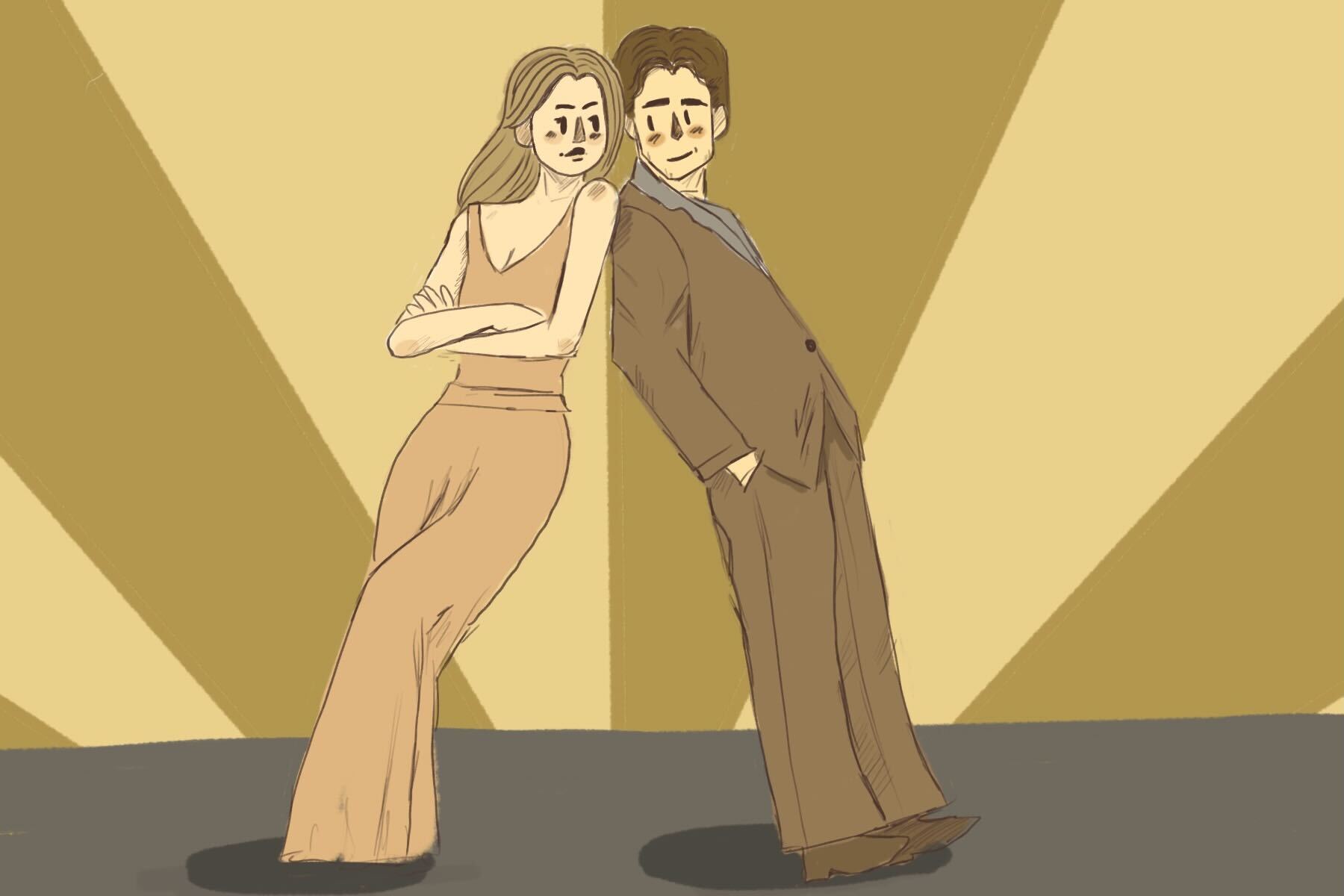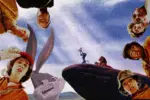As a rom-com movie lover, it aches me to see my favorite genre dying out. There is nothing better than coming home from a long day of work or class, snuggling up with a blanket and watching a sappy rom-com. They are the best comfort movies of all time. In the modern film industry, the most profitable films are superhero movies from multimedia titans like Marvel. After all, that is practically all we see in the theaters nowadays.
Let’s be real: Money does play a large role in the film industry. Rom-coms, which were called “screwball comedies” in the late 1930s and ‘40s, were never known to bring in the big bucks, and producers are still less likely to develop them today. “Another factor in terms of rom-coms’ box office performance,” wrote journalist Jessica Sager, “is that they don’t appeal as much to global audiences as franchises like Avengers, Fast and Furious, Harry Potter, James Bond, Star Wars or Disney animated features, especially in China — the biggest major box office market on the planet. A glance at the 200 worldwide highest-grossing movies of all time doesn’t have a single American romantic comedy on it.”
Producers are hesitant to green-light rom-coms because of budget issues, but that doesn’t explain why viewers have suddenly strayed away from them. Some fans are deterred by the fact that rom-coms are starting to look the same. There is not a lot of diversity in their plots or characters, which means that the genre’s politics, heteronormativity and general whiteness no longer represent target consumers’ changing attitudes and demographics. As a result, studios started to alter their strategy and cast actors who better represented their audiences.
Generational Cynicism
However, there is one question I continue to ask myself: Does the way this generation finds love affect their ratings of rom-coms? A typical early 2000s rom-com movie usually involves two people meeting by coincidence in a big city, small town or through mutual friends, which seems like such a foreign concept now. With the widespread use of dating apps and social media, humans have become socially awkward — a problem exacerbated by the COVID-19 pandemic.
One of the most iconic and familiar rom-coms of all time, the 1999 film “She’s All That,” was rebooted in 2021 as “He’s All That,” starring Addison Rae. It was truly a letdown. After watching both the original and new movie, it was unpleasant to see the depiction of romance fall from a genuine and real conversation in the 1999 film to “Did he like my Instagram picture?” in the 2021 movie.
But the 2000s-era rom-coms are no longer relatable to a younger generation, so can you blame viewers for not being interested? Instead, romantic movies are now considered “cheesy” or unrealistic. Conflict became a driving force in rom-com movies as the ‘00s progressed: Characters got into family drama, in-law drama and the general chaos of marriage. Christopher Ingraham, an author and reporter for The Why Axis, pointed out that modern rom-com “scripts show a growing emphasis on conflicts and mixed feelings between the two main leads.” Perhaps romance itself has changed. Dating is not the “Let’s have a milkshake at the 24-hour diner” experience anymore.
Selling Conflict
But why do present-day rom-coms revolve around conflict? The relationships we observe in movies are more frequently characterized by discord, conflicting emotions and unease than those we observe in real life. Nevertheless, real-life divorce rates are higher than ever. There is speculation that the two conflicts go hand in hand, which prompts another question: Is the media influencing romantic relationships? Or are relationships influencing the media?
Ingraham went on, “The authors suspect the growing portrayal of conflict and mixed feelings as central elements of modern romance may be giving audiences skewed perceptions of how relationships should work.” He then quoted fellow author Melissa Moore, who said, “These depictions tell audiences that the experience of falling in love is inherently uncomfortable, and their persistent and increasing use may cultivate unhealthy relationships depictions in young audiences’ minds.” It seems that conflict-driven rom-coms are scaring off young lovers instead of encouraging them to pursue each other. Hopeless romantics may find this a hard concept to grasp, but when the media heavily influences audiences, rom-com consumers tend to look to their screens for guidance when it comes to their love lives.
On The Review Geek, writer Emma C. C. shared that “media are now trying to shake off the idea that you need a princess or a prince to be happy and trying to spread the message that love can be found in places other than romance.” It’s important to be independent and happy on your own, but it’s equally important to find romance. Why do people have to pick between the two? Maybe hook-up culture is to blame, or maybe the timing of romance has just changed.
That’s not to say that romance is always something that should happen right now. I believe that everything comes at the right time and right when you need it; romance is best when it is least expected. There is no timeline for finding love, but when it does arrive, hopefully it arrives with signature rom-com flair.

















